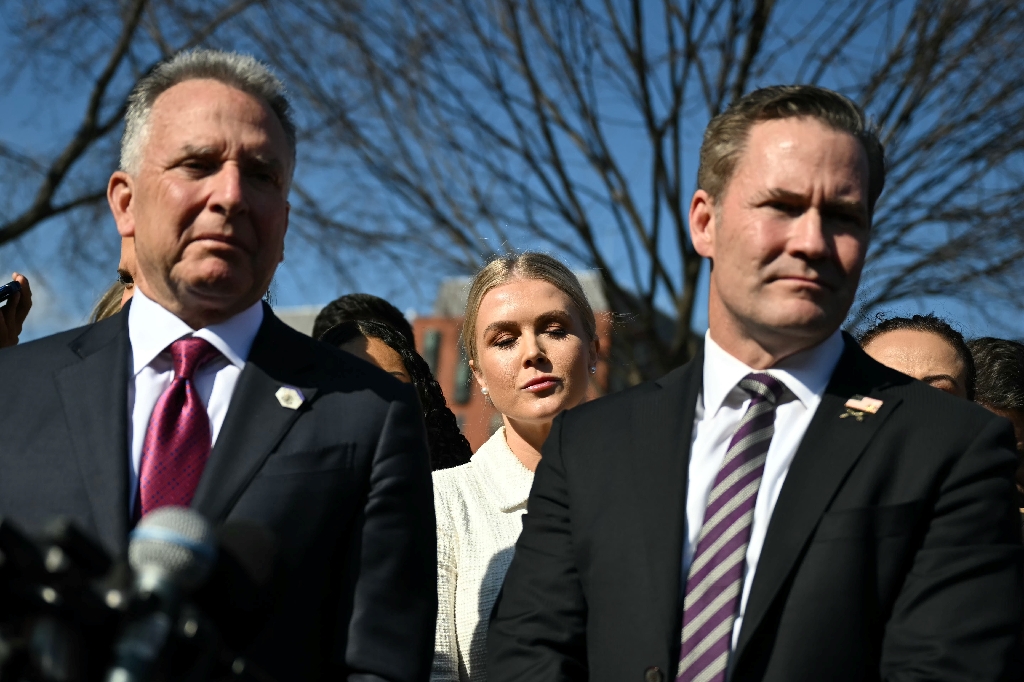(AFP) – Joe Biden’s tone on Israel has been hardening in recent days, but when he called the country’s response in the Gaza Strip “over the top” this week, the US president crossed into new territory.
The comments made Thursday were the strongest by the US leader since Israel launched its barrage on Gaza following Hamas’ October 7 attacks — leaving the White House quietly scrambling to temper their effect.
The episode reflects the growing divide between the Democratic president and Israeli Prime Minister Benjamin Netanyahu’s coalition government which includes far-right ministers.
Observers agree the shift in tone is not likely to impact the billions of dollars in military aid that the United States is accustomed to sending to Israel — a new and tenuous $14 billion package is, for example, currently under consideration in the divided US Congress.
But US officials are no longer hiding their frustration with the way Israel is conducting the war as it enters its fifth month.
“I’m of the view, as you know, that the conduct of the response in Gaza, in the Gaza Strip, has been over the top,” Biden said Thursday evening during an impromptu exchange with reporters at the White House.
“There are a lot of innocent people who are starving, a lot of innocent people who are in trouble, dying, and it’s got to stop,” he said.
– ‘Position hasn’t changed’ –
Hamas’ unprecedented October 7 attack resulted in the deaths of about 1,160 people in Israel, mostly civilians, according to an AFP tally based on official Israeli figures.
In response, Israel launched air strikes and a ground offensive that have killed at least 27,947 people in Gaza, mostly women and children, according to the health ministry in the Hamas-run territory.
Biden has already used the same “over the top” expression to describe Hamas’ response to a plan aimed at calling a truce in Gaza in exchange for the release of hostages.
But his comments this week come at a critical point as Netanyahu says he is planning an offensive on Rafah in the south, where an estimated 1.3 million civilians have sought refuge.
In Washington, US officials said they had not seen any preparations suggesting imminent or “major operations,” while warning that such an offensive could spark a disastrous scenario similar to that which has already unfolded in the north.
White House Press Secretary Karine Jean-Pierre stressed Friday that Biden’s “position hasn’t changed.”
That said, Washington has begun to raise its voice. This month the administration imposed sanctions on a handful of Jewish settlers over violence against Palestinian civilians in the West Bank, in a rare step against Israelis.
The prevailing US position increasingly appears to vacillate between support for Israel’s right to defend itself and the protection of civilians in Gaza, albeit while rebuffing calls for a ceasefire.
Meanwhile US Secretary of State Antony Blinken, fresh off his fifth tour of the region, is struggling to lay the foundations for a post-war scenario, which he sees as including a reformed Palestinian Authority, a pathway towards the creation of a Palestinian state and a possible normalization of ties between Israel and Saudi Arabia.
At this stage, his efforts have been rejected by Israel, at least publicly.
– ‘Very bad’ response –
Biden, who is running for reelection in November, is clearly under pressure both abroad and at home.
In Arab countries, an overwhelming majority of people (82 percent) judge the United States’ response as “very bad,” according to an Arab Center Washington poll published on Thursday.
And 81 percent believe the US government is “not serious” about working to establish a Palestinian state, according to the poll of 8,000 people across 16 Arab countries.
At home, the Democratic Party’s progressive wing criticizes policy it deems too pro-Israel, while Arab-Americans have expressed exasperation at the support.
Now during nearly every public appearance, Biden is met by demonstrators waving Palestinian flags and chanting the slogan “Genocide Joe.”
– Léon BRUNEAU




